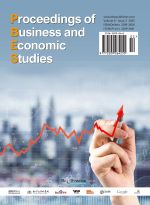Abstract
This essay explores the intersection of AI-driven tools like DeepSeek and its impact on academic assessments in accounting education. Using the Management Accounting course as an example, this research examines how AI technologies are influencing the nature of student assessments, particularly in terms of their effectiveness and accuracy. The study also investigates how DeepSeek serves as both an educational aid and a potential threat to traditional accounting assessment methods. By analyzing multiple choice questions (MCQs) from 22’–23’, the second semester’s final exam performance for the Management Accounting course, the research evaluates the AI’s ability to solve numerical and narrative-based questions correctly, comparing its performance against traditional student responses. Findings suggest that while AI can achieve high performance on simpler tasks, it struggles with complex accounting concepts that require critical thinking and deeper understanding. Furthermore, the paper discusses the implications of these findings for both lecturers and students, highlighting the need for a balance between technological innovation and traditional academic integrity. Ultimately, it calls for a re-evaluation of assessment frameworks to incorporate AI as a tool for learning enhancement while safeguarding against misuse in academic environments.
References
Lu D, 2025, Disruption and Reconstruction: The “Butterfly Effect” in Education Triggered by DeepSeek and Strategies for Response. Journal of Xinjiang Normal University, (04): 1–9.
Hu Y, 2023, Analysis of Enterprise Financial Intelligence in the Digital Economy. Modern Accounting, 6: 22–25.
Yu Q, 2025, When 80% of the Homework Can be Correctly Completed by DeepSeek. China University Teaching, (1–2): 4–55.
Liu Z, 2023, Embracing Management Accounting in the Era of Artificial Intelligence. China Management Accounting Review, (3): 5–10.
Team B, 2025, DeepSeek AI usage stats, Backlinko, viewed March 10, 2025, https://backlinko.com/DeepSeek-stats
Indra A, 2024, ChatGPT and Academia on Accounting Assessments. Journal of Open Innovation: Technology, Market, and Complexity, (1): 100213.
Wei M, 2023, A Brief Discussion on the Impact of Large-scale AI Application on Financial Management and Accounting Practices. Money China, (19): 111–113.
Meng P, 2025, AI Deeply Empowers the Education Industry. China Securities Journal, A06.
Qi X, Wang T, 2025, An Exploration of the Path to Digital Upgrade in Management Accounting: A Case Study of Huawei AI DC. Finance and Accounting for International, (2): 13–16.
Samuele B, Ilaria B, 2025, Fundamental Rights and Artificial Intelligence Impact Assessment: A New Quantitative Methodology in the Upcoming Era of AI Act. Computer Law & Security Review, (56): 106101.
Maria I, Elaheh Y, 2024, ChatGPT in the Higher Education: A Systematic Literature Review and Research Challenges. International Journal of Educational Research, (127): 102411.
Himendra B, Sachini P, 2025, Reassessing Academic Integrity in the Age of AI: A Systematic Literature Review on AI and Academic Integrity. Social Sciences & Humanities Open, (11): 101299.
Lemuria C, Liu D, 2025, How Was My Performance? Exploring The Role of Anchoring Bias in AI-assisted Decision Making. International Journal of Information Management, (82): 102875.
Elizabeth I, Dian T, Carla R, et al., 2024, Co-creation in Action: Bridging the Knowledge Gap in Artificial Intelligence Among Innovation Champions. Computers and Education: Artificial Intelligence, 7: 100272.
Xu Z, Qiu S, 2025, The Theoretical Logic and Practical Pathways of DeepSeek Empowering the Cultivation of Top-Notch Innovative Talents. Journal of Chongqing University (Social Science Edition), (2): 2–12.
